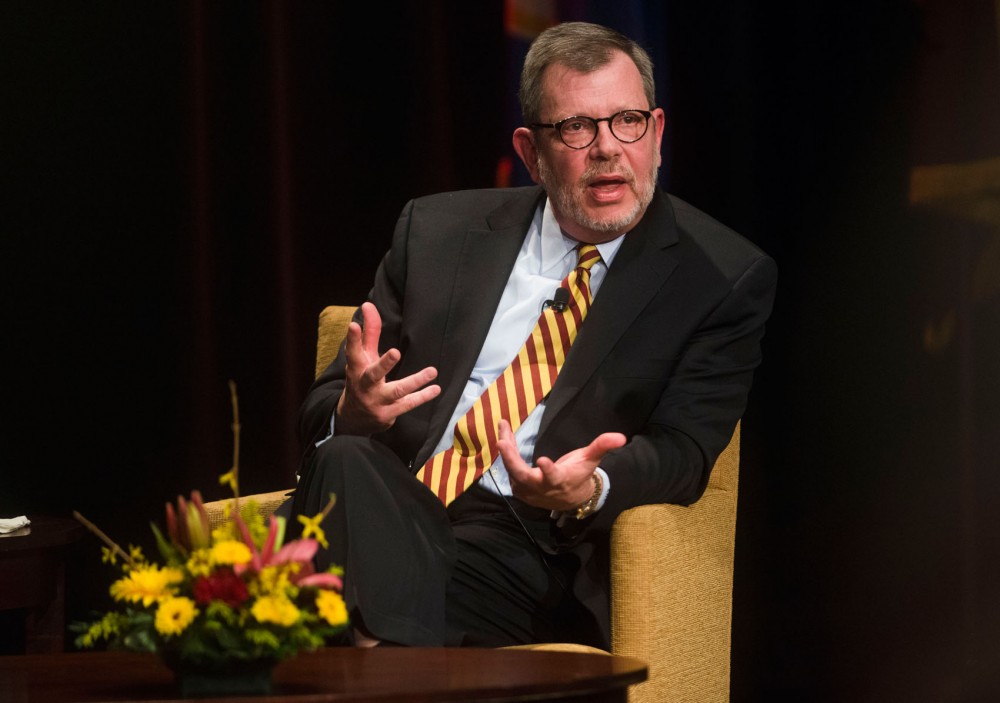University of Minnesota President Eric Kaler laid out his goals for next school year in his fourth annual State of the University address.
Kaler addressed several priorities for the institution on Thursday, including advancing the University’s strategic plan, creating a more diverse campus, strengthening human research trials and reducing administrative costs.
Kaler spoke about a report the state legislative auditor released last month that highlighted ethical concerns surrounding the suicide of Dan Markingson, a man who was enrolled in an antipsychotic drug study at the University when he died. Another external report released in February found issues in the school’s human subject research programs. Kaler said the school recently formed a group to review and implement recommendations from the external report.
“This outside leadership is important to gain the trust of the public, of legislators and, perhaps, some of you as we move forward,” he said.
The group will present a plan to Kaler by May 15.
The University president addressed campus diversity and a recent change in the crime alert policy, which only calls for race descriptors when officials say they could accurately identify a suspect.
In an attempt to increase diversity, Kaler said the University will develop outreach strategies for students of color in high schools and potentially even middle schools.
Kaler said an ongoing priority of his is to continue reducing administrative spending. In addition to the $39 million in cuts to administrative functions the school has made over the past two years, he said the school plans to continue with the goal of reducing $90 million in administrative expenditures over six years.
While Kaler said he was thankful Gov. Mark Dayton proposed in February to fully fund a tuition freeze for resident undergraduate, graduate and professional students, he said that this strategy is not a sustainable or feasible solution for tackling college affordability.
He said modest tuition increases could be necessary in the future, but he hopes he never sees double-digit increases.
Ashley Hall, vice president of the Graduate and Professional Student Assembly, said college affordability is a big issue for students and she had hoped Kaler would offer concrete examples of how the University plans on keeping tuition low for all students.
“I would like to hear more about how the University is looking to lower the cost of education in the future,” Hall said.
Jacob Froelich, president of the University of Minnesota-Duluth Student Association, said he had hoped Kaler would have elaborated more when asked about how funds are distributed across the University system.
The Duluth campus currently faces a $6 million budget deficit and declining enrollment numbers. Some student leaders, including Froelich, are requesting additional information about how funding decisions are made.
“We want more transparency. We want more answers here,” Froelich said.


